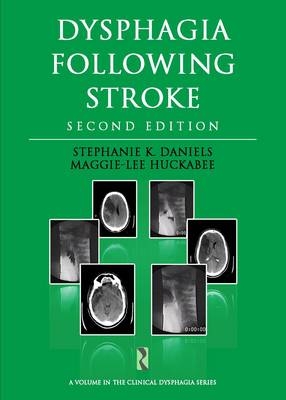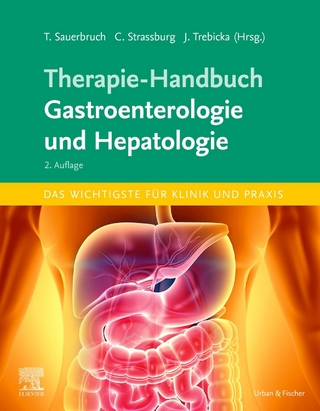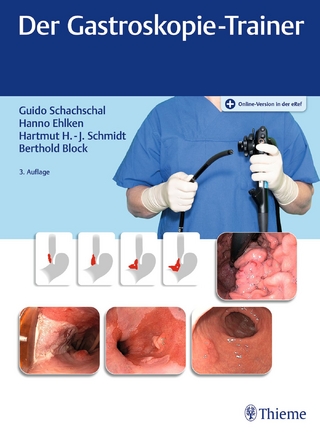
Dysphagia Following Stroke
Plural Publishing Inc (Verlag)
978-1-59756-544-8 (ISBN)
- Titel ist leider vergriffen;
keine Neuauflage - Artikel merken
This practical and easy-to-use handbook provides up-to-date coverage of the evaluation and treatment of swallowing disorders in the stroke population. The gap between academics and clinical practice is narrowed with the latest research packaged for clinical application. Particular focus is on the clinical and instrumental evaluation of swallowing, measurements of dysphagia, principles of care for patients with dysphagia following stroke, rehabilitation and risk management. Clinical examples are incorporated throughout the text to facilitate clinical integration and relevance. For the second edition, the authors have revised the text to reflect new research to guide clinical practice in evaluation and treatment, particularly the section on emerging modalities. A section on swallowing screening has been added, and the section on videofluoroscopic interpretation and treatment has been updated. With its updates and revision, Dysphagia Following Stroke, Second Edition, is sure to remain a favorite resource for clinicians treating swallowing disorders in the stroke population.
Stephanie Daniels, PhD Research Speech Pathologist Michael E. DeBakey Veterans Affairs Medical Center, Houston, Texas Assistant Professor, Department of Physical Medicine and Rehabilitation, Baylor College of Medicine Stephanie K. Daniels, Ph.D. is a research speech pathologist at the Michael E. DeBakey Veterans Affairs Medical Center in Houston, Texas and is Assistant Professor in the Department of Physical Medicine and Rehabilitation at the Baylor College of Medicine. Prior to obtaining her doctorate, she was a practicing clinician for twelve years. Her research and clinical work has focused on neurogenic dysphagia. Maggie-Lee Huckabee, PhD Senior Lecturer Department of Communication Disorders, University of Canterbury Senior Researcher Van der Veer Institute for Parkinson's and Brain Research in Christchurch, New Zealand Maggie-Lee Huckabee, Ph.D., practiced as a clinician for thirteen years before the frustration of never knowing "the answers" led her to an academic career. She is now senior lecturer in the Department of Communication Disorders, University of Canterbury and senior researcher at the Van der Veer Institute for Parkinson's and Brain Research in Christchurch, New Zealand. She still hasn't found "the answers" but is trying, with research interests focusing on the complexities of behaviorally-driven neural adaptation and biomechanical change leading to swallowing recovery. Dr. Huckabee has a great time supervising terrific, emerging researchers, overseeing a busy laboratory and enjoying the beauty of New Zealand.
Foreword Preface Acknowledgements Abbreviations Chapter 1 Introduction to Dysphagia and Stroke Overview of Stroke Dysphagia in Stroke Chapter 2 The Neural Control of Swallowing: From Central to Peripheral Methods for Understanding Neural Control Higher Nervous System Control Central Pattern Generator/Brainstem Mechanisms Peripheral Neuromuscular Mechanisms Chapter 3 Normal Swallowing Anatomy and Physiology Defining Normal and Abnormal Swallowing Phases of Swallowing Chapter 4 Screening of Swallowing Defining Screening Considerations When Implementing Swallowing Screening Available Swallowing Screening Tools Chapter 5 The Clinical Swallowing Examination: History and Patient Interview Patient History Patient and Family Interview Chapter 6 The Clinical Swallowing Examination: Cognition and Communication Assessments The Cognitive Assessment The Communication Assessment Chapter 7 The Clinical Swallowing Examination: The Evaluation of the Oral Mechanism Structural Integrity The Cranial Nerve Examination: Inferring Physiology Case Example Chapter 8 The Clinical Examination of Swallowing: Assessment of Oral Intake Chapter 9 The Clinical Swallowing Examination: Predicting Dysphagia and Aspiration The Water Swallow Test The CSE with a Focus on Clinical Features Predicting Dysphagia and Aspiration The Mann Assessment of Swallowing Ability Chapter 10 Adjuncts to the Clinical Swallowing Examination Pulse Oximetry Cervical Auscultation Cough Reflex Testing Chapter 11 The Instrumental Examination: The Videofluoroscopic Swallow Study The Need for Diagnostic Specificity The Videofluoroscopic Swallowing Study Chapter 12 The Instrumental Examination: Evaluation of Swallowing Respiratory Coordination - An Auxiliary to the Videofluoroscopic Swallow Study Chapter 13 The Instrumental Examination: Videoendoscopic Evaluation of Swallowing Chapter 14 The Instrumental Examination: Manometric Evaluation of Swallowing What Can Manometry Offer to Clinical Practice? Case Examples Chapter 15 Professional Responsibilities in Dysphagia Diagnosis in Stroke Case Example Chapter 16 Diagnosis of Dysphagia in Stroke Oral Phase Pharyngeal Phase Oral and Pharyngeal Dysmotility in Stroke Chapter 17 Diet Considerations: To Feed or Not to Feed An Overview of Options for Feeding the Dysphagic Patient Non-Oral, Enteral Feeding Options Decision Making for Non-Oral Nutrition Free Water Chapter 18 Compensatory Management Postural Changes Sensory Enhancement Volitional Control of Oral Transfer Breath-Holding Techniques Bolus Modification Chapter 19 Rehabilitation of Oropharyngeal Dysphagia Oral Motor Exercises Effortful Swallow Mendelsohn Maneuver Masako Maneuver (Tongue-Hold Maneuver) Head-Lift Exercise Expiratory Muscle Strength Training Neuromuscular Strength Training Chapter 20 Maximizing Rehabilitation Effectiveness Biofeedback Modalities in Dysphagia Rehabilitation Dose Paradigms for Rehabilitation: Applying Models of Motor Learning nd Strength Training to Swallowing Rehabilitation Chapter 21 Emerging Modalities in Dysphagia Management Chapter 22 Medical and Surgical Management Medical Management Surgical Intervention Chapter 23 Lagniappe Management Effectiveness with Stroke Patients Reassessment Last Thoughts
| Zusatzinfo | illustrations |
|---|---|
| Verlagsort | San Diego |
| Sprache | englisch |
| Maße | 254 x 203 mm |
| Gewicht | 431 g |
| Themenwelt | Medizin / Pharmazie ► Gesundheitsfachberufe ► Logopädie |
| Medizinische Fachgebiete ► Innere Medizin ► Gastroenterologie | |
| Medizin / Pharmazie ► Medizinische Fachgebiete ► Neurologie | |
| ISBN-10 | 1-59756-544-X / 159756544X |
| ISBN-13 | 978-1-59756-544-8 / 9781597565448 |
| Zustand | Neuware |
| Haben Sie eine Frage zum Produkt? |
aus dem Bereich


